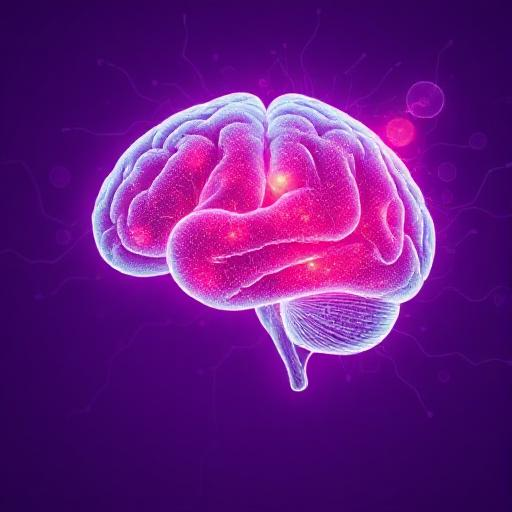
Why Brain Health Matters
As we age, maintaining a healthy mind becomes just as crucial as caring for our body. Cognitive decline, memory lapses, and slower thinking can affect daily life, relationships, and independence. The good news is that your brain has incredible plasticity, meaning it can adapt, repair, and grow at any age. By adopting specific lifestyle habits, you can age-proof your brain, preserve mental sharpness, and enhance overall cognitive function.
This article explores 5 proven ways to protect your brain and maintain lifelong mental agility.
1. Stay Physically Active to Boost Brain Health
Physical exercise is one of the most effective ways to support brain function. Studies show that regular movement improves blood flow, promotes the growth of new neurons, and enhances memory and focus.
Benefits of Exercise for Cognitive Function
- Increases oxygen and nutrient delivery to the brain.
- Stimulates production of neurotrophic factors that protect neurons.
- Reduces the risk of age-related conditions like dementia.
Recommended Exercise Routine
- Aerobic exercises: Walking, jogging, cycling, or swimming for at least 150 minutes per week.
- Strength training: Two sessions per week to maintain muscle and bone health.
- Mind-body exercises: Yoga, tai chi, or Pilates improve focus, balance, and stress management.
Quick Daily Tips
- Take stairs instead of elevators.
- Walk during phone calls or lunch breaks.
- Stretch every hour to boost circulation and alertness.
SEO Keywords: exercise for brain health, cognitive benefits of exercise, age-proof brain
2. Eat a Brain-Boosting Diet
Nutrition plays a pivotal role in protecting your brain. Foods rich in antioxidants, healthy fats, and vitamins reduce inflammation and support cognitive function.
Essential Nutrients for Brain Health
- Omega-3 fatty acids: Found in salmon, mackerel, walnuts, and flaxseeds.
- Antioxidants: Berries, dark chocolate, green tea, and colorful vegetables.
- B vitamins: Leafy greens, beans, and fortified cereals.
- Polyphenols: Coffee, tea, red wine, and fruits help improve memory.
Brain-Friendly Diet Patterns
- Mediterranean Diet: Emphasizes vegetables, fruits, whole grains, olive oil, and fish.
- MIND Diet: Combines Mediterranean and DASH diets for cognitive protection.
Hydration Tips
- Drink 2–3 liters of water daily.
- Limit sugary drinks that increase inflammation.
SEO Keywords: brain-healthy diet, foods for memory, prevent cognitive decline naturally
3. Keep Your Mind Engaged and Stimulated
Mental activity is crucial for maintaining cognitive agility. Challenging your brain creates new neural connections and strengthens memory.
Ways to Stimulate Your Brain
- Reading and writing: Daily reading improves comprehension; journaling enhances memory.
- Learn new skills: Musical instruments, languages, or strategy games like chess.
- Puzzles and games: Sudoku, crosswords, and memory games improve focus.
Social Interaction Enhances Brain Function
Meaningful social connections stimulate multiple areas of the brain. Join clubs, volunteer, or participate in group discussions to boost mental sharpness.
Digital Tools
Use apps designed for cognitive training to complement traditional learning.
SEO Keywords: mental stimulation for brain, brain exercises, cognitive training tips
4. Prioritize Sleep and Manage Stress
Sleep and stress significantly impact brain health. Poor sleep and chronic stress contribute to memory problems and accelerate cognitive decline.
Sleep Tips for Brain Health
- Aim for 7–9 hours of quality sleep nightly.
- Maintain a consistent sleep schedule.
- Limit screens before bedtime.
- Keep the bedroom dark, quiet, and cool.
Stress Management Strategies
- Meditation and mindfulness: Improves attention and emotional regulation.
- Deep breathing exercises: Reduces cortisol levels.
- Physical activity: Boosts endorphins and reduces stress hormones.
Mental Rest
Short breaks throughout the day improve focus and memory consolidation.
SEO Keywords: sleep for brain health, stress management for memory, prevent cognitive decline
5. Protect Your Brain from Harmful Factors
Minimizing exposure to toxins and harmful habits is essential for long-term cognitive health.
Limit Neurotoxic Substances
- Alcohol: Moderate consumption — one drink per day for women, two for men.
- Smoking: Avoid tobacco to reduce dementia risk.
Manage Chronic Health Conditions
- Control blood pressure, diabetes, cholesterol, and weight to protect cognitive function.
Prevent Head Injuries
- Wear helmets and take precautions to prevent falls.
- Even mild head injuries can impact memory later in life.
Reduce Environmental Toxins
- Use air filters.
- Avoid high-mercury fish and polluted areas.
SEO Keywords: protect brain health, prevent memory loss, healthy lifestyle for cognition
Additional Tips for Lifelong Cognitive Resilience
- Engage in creative hobbies like painting or music.
- Spend time in nature for mental rejuvenation.
- Maintain social connections for emotional and cognitive health.
- Live with purpose by setting goals and engaging in meaningful activities.
Conclusion
Age-proofing your brain is a lifelong journey. By combining physical exercise, a nutrient-rich diet, mental stimulation, quality sleep, and protection from harmful factors, you can maintain memory, focus, and cognitive vitality well into your later years. Small, consistent daily actions lead to long-term benefits, helping you stay sharp, independent, and mentally agile.
Your brain is resilient — nurture it today to ensure a vibrant, healthy mind tomorrow.
